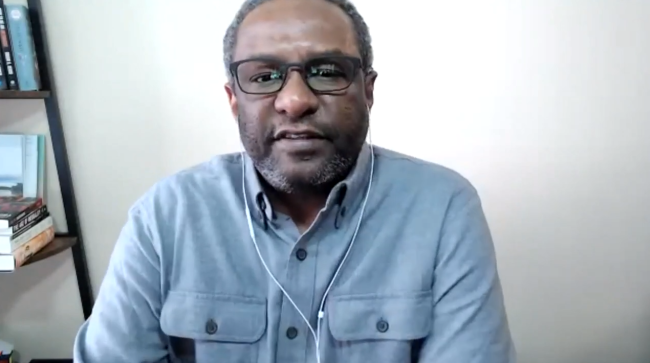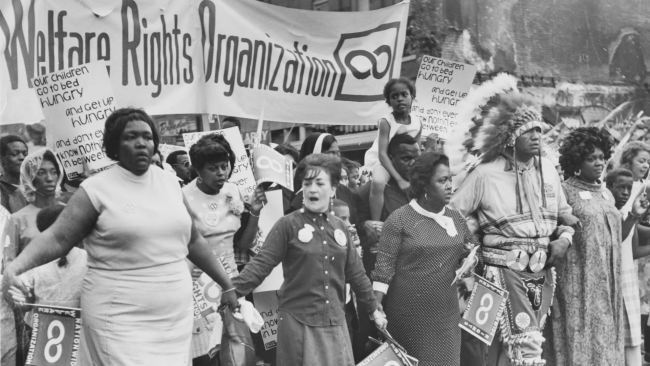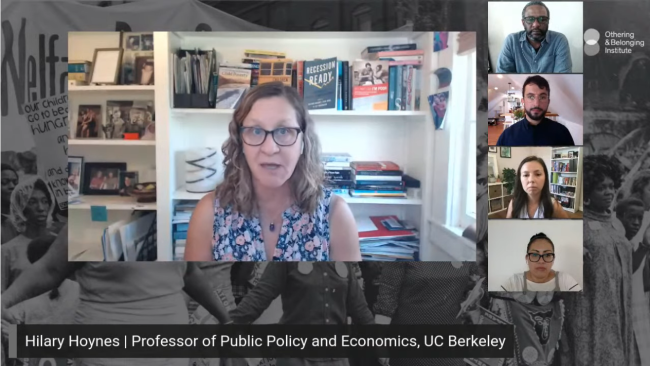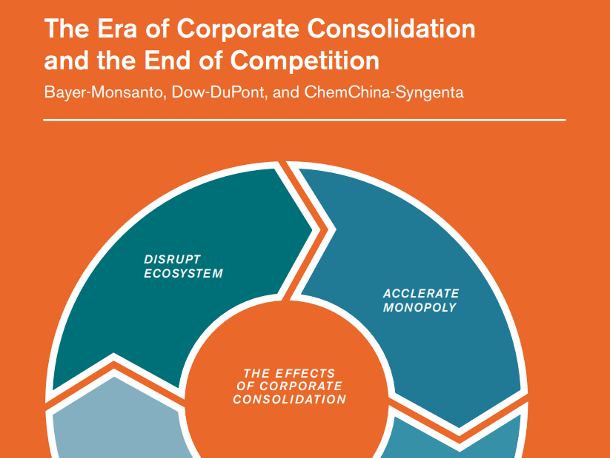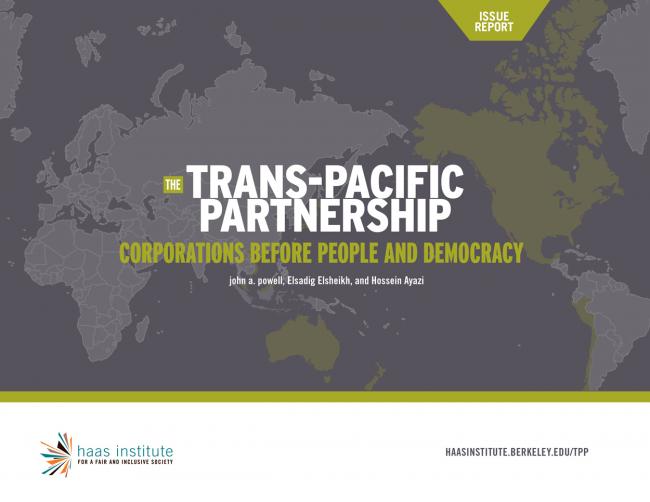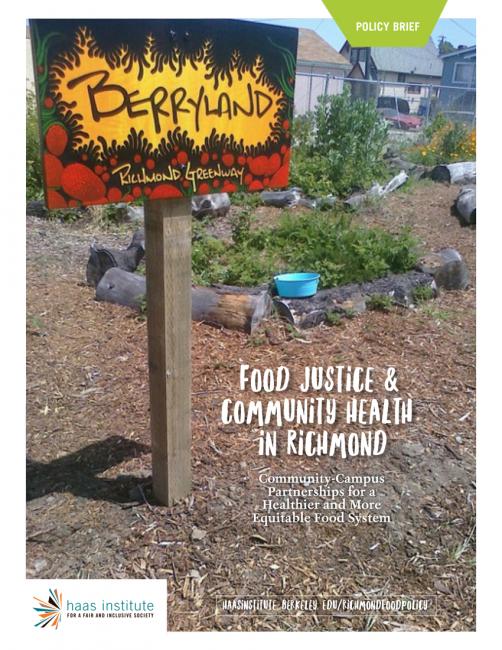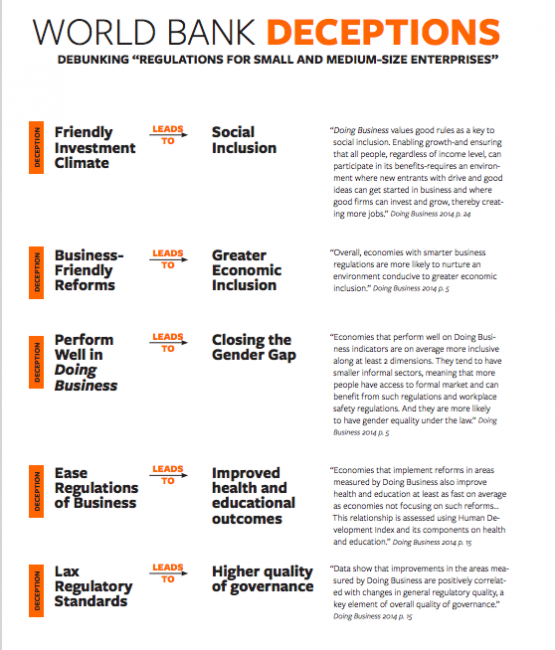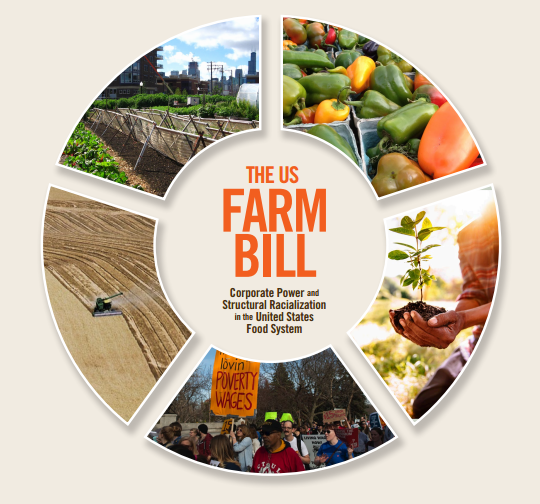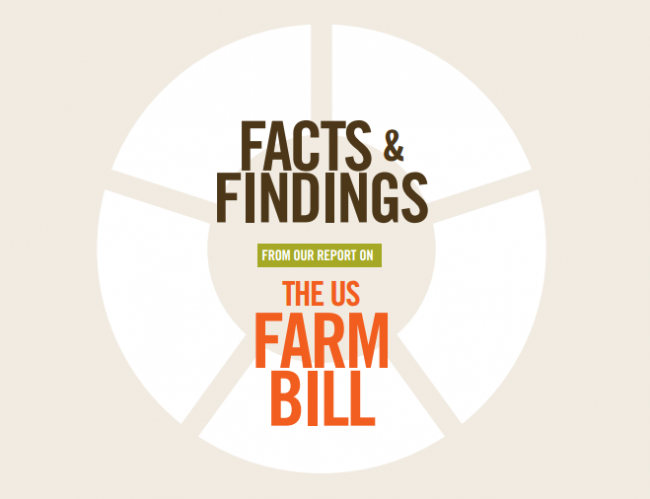Based on critical research, the Food Systems, Race, and Corporate Power project area seeks to create an infrastructural model that is committed to building just and democratic global and local food systems. By identifying and testing strategies designed to impact policy and effect transformative change for fair and sustainable food systems, this area of work intends to support local, national, and global social movements, communities, policy advocates, and researchers on issues related to the process—from production to consumption—of sustainable food systems. Projects span the topics of U.S. food systems policy; corporate impunity, trade, and development; and global food sovereignty.
U.S. Food Systems Policy
The Food Systems Policy project area provides comprehensive critiques of U.S. food systems policy and its role in the production and maintenance of dispossession, exploitation, and organized abandonment of communities of color and low-income communities. It highlights community and policy strategies for just and sustainable food systems and societies.
Corporate Impunity, Trade, and Development
The Corporate Impunity, Trade, and Development project area explores how Global North corporations have exercised political and economic power in ways that perpetuate the marginalization of the Global South and communities in the Global North. It scrutinizes free-trade agreements, agri-food corporations, and the development initiatives of global financial institutions in particular and highlights strategies to expose and counter them.
Global Food Sovereignty
The Global Food Sovereignty project area connects, convenes, and helps develop contemporary expressions of the transnational movement for “food sovereignty,” or efforts to realize local, just, and sustainable food systems and development trajectories as peoples’, countries’ or state unions’ see fit, and as they need for climate resilience.
In the Media
- More Americans struggling to put food on the table after federal benefits end (USA Today) | Sept. 18, 2021
- Your Crash Course on Food Justice: A Reading Syllabus (KQED) | June 26, 2020

